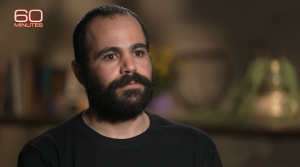The northern campus of the Anne and Max Tanenbaum Community Hebrew Academy of Toronto will close at the end of June, and students will be consolidated in the school’s southern campus, UJA Federation of Greater Toronto announced March 6.
At the same time, the federation also unveiled a $15-million fund that will be used to slash tuition at the Jewish high school by one-third for the next five years, dropping tuition from close to $28,000 to $18,500 next year and keeping it under $19,000 for the next five years.
Federation surveys had found that students were leaving the Jewish day school system after Grade 8, largely because of tuition. The average day school tuition in Grade 8 is about $16,000.
The donations – $10-million from the Jesin-Neuberger Foundation and $5 million from an anonymous donor – will be used to support the tuition reduction. Of the entire donation, $1 million has been earmarked for Jewish education in York Region.
Donors Norm Jesin and Edie Neuberger are TanenbaumCHAT alumni and were concerned about the school’s declining enrolment and rapidly rising tuition, far outstripping the cost of living, said Daniel Held, executive director of the UJA Federation’s Koschitzky Centre’s for Jewish Education.
The conversations about merging the two campuses and the philanthropic donation were separate. The donation did not come with the condition that the schools merge, Held said.
READ: DWINDLING AFFORDABILITY PUTS DAY SCHOOLS AT CROSSROADS
“The donors’ goal was to ensure the affordability of education and to maximize enrolment,” Held said. “There were no strings attached.”
The donations “are an important first step” in making day school more affordable for middle-income families, which is a key part of federation’s strategic plan, said Adam Minsky, president and CEO of UJA Federation of Greater Toronto.
“We will know in the next two years very clearly how this has influenced retention and enrolment. And we need to start working immediately to build a philanthropic network to support this beyond TanenbaumCHAT and also to ensure this is sustainable at CHAT,” Minsky said in an interview from Israel.
TanenbaumCHAT’s Kimel Family Education Centre, located on the Schwartz-Reisman campus, along with a Jewish community centre, has struggled with enrolment. This year, a total of 966 students were enrolled on both campuses, with 381 students at the northern facility and 585 at the southern branch on Wilmington Avenue.
Currently, 850 students are registered for September, and the “vast majority of students” are expected to continue at the merged school, said Held.
The Wilmington branch can hold more than 1,000 students. The school was recently renovated to add a new science wing, a music room and a black box theatre.
While TanenbaumCHAT’s strategic plan had called for maintaining two campuses, in the end it wasn’t possible, said Ray Rubin, president of the school’s board of directors.
“We tried very diligently and very intensively and we fought to keep two campuses open,” Rubin said. “Our applications for enrolment were just so low we thought we would be sacrificing too much, it became not viable.
“The most important thing to us is… our excellent academics, our vibrant extracurricular opportunities, and it’s just not possible if we don’t have the numbers to support it.”
Renee Cohen, current principal at the Kimel branch, will be the principal at the merged campus. Jonathan Levy, principal at the southern campus, will assume the job of head of school in the fall. Rabbi Lee Buckman, the current head of school, is leaving to make aliyah.
The merger will allow TanenbaumCHAT to offer a fuller range of elective courses and extracurricular programs that could not be offered previously with lower enrolments at each branch, Held said.
For instance, not enough students had signed up for a special engineering program at the north branch, so it’s never been offered there. Students in the merged school now will be able to enrol in the program, Rabbi Buckman said.
In November, it was announced that Leo Baeck Day School would sell its building on Atkinson Avenue, also in the northern suburbs, and share space with TanenbaumCHAT’s northern Kimel campus in an effort to shore up both schools’ declining enrolments.
That move is still on, said Eric Petersiel, head of school at Leo Baeck, but the collaboration that was envisioned with high school students mentoring younger children will not take place.
The merger highlights the need for more affordable education, Petersiel said in an interview.
“The commitment of two families to give $15 million is an acknowledgment we’re failing our families in providing affordable and accessible Jewish education at the top. That’s the question we have to dramatically address as a community,” he said.
READ: LIMMUD 2017 HIGHLIGHTS PROGRAMMING FOR YOUNG PEOPLE
“I think people overall are pleased to see the school take financial sustainability seriously, but at the same time, some are disappointed at the lack of proximity to liberal Jewish education.”
The merger will lead to job losses, but it is too early to say what the final numbers will be, Rabbi Buckman said. Teachers, administrators and staff are covered by separate contracts, and hiring decisions will be made by June, he said.
A March 6 note on the Facebook page of the Federation of Teachers in Hebrew Schools from union head Aviva Polonsky, addressed to teachers at the Kimel branch, read, “We are all surprised by today’s announcement. The [union] executive and representatives will be monitoring the situation and working hard to protect your interests.”
A meeting for teachers at both branches will be held soon, the note said.
Students from both campuses took to social media and vented their frustration in mean-spirited messages after the announcement.
Some 350 students at the north branch poured out into the parking lot March 7 for a raucous noon-hour protest and show of support for their school, chanting “N-O, we won’t go” and “Save our staff.”
Alan Shriqui, a Grade 12 student and member of student council said, “This isn’t a protest. It’s standing in solidarity with teachers and staff and telling them that we really care about the north campus, our spirit and who we are as the north campus. It’s less of a protest and more of a celebration of [the north campus].”
Rabbi Buckman said while watching the students, “These kids love their school and I’m proud of that. They are expressing their loyalty. That’s the beauty of CHAT.”
In an interview, Rabbi Buckman said it will take time for students to adjust to the merger. “It’s almost like a loss. As exciting as the tuition reduction is, it’s a big change,” he said, “Our major focus right now is to help the kids navigate the uncertainty.”
An email sent to students the evening of March 6 attempted to ease their concerns about merging two school cultures, competitive sports teams and programs on one campus.
Students will be invited to work with staff to combine programs and work out details of how student council and other institutions will be run, Rabbi Buckman said.
Students who have signed up for busing in the past can continue to sign up for the private bus program, the email said.
A telephone town hall meeting for parents is scheduled for March 8.
With files from Ron Csillag







